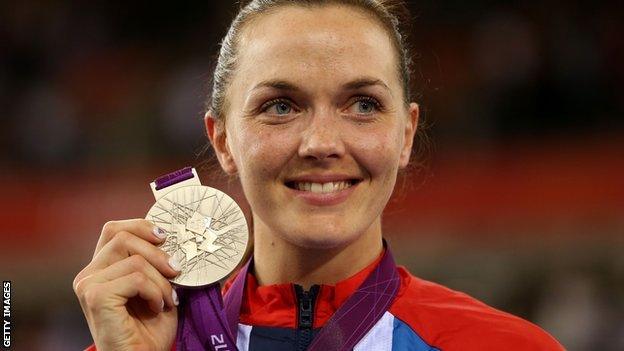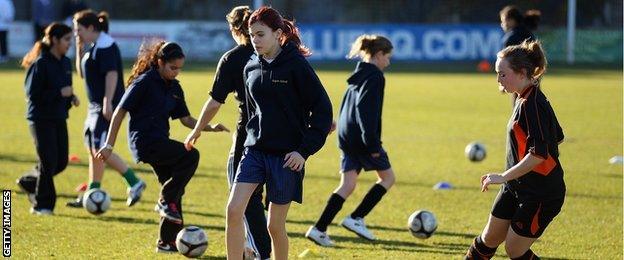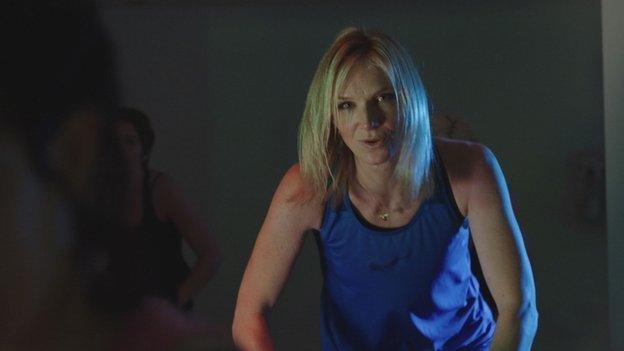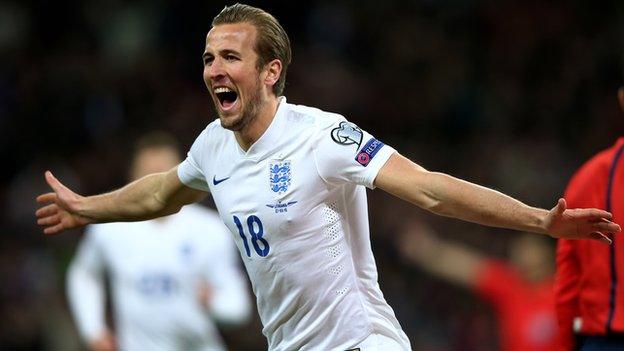Victoria Pendleton calls for changes in PE lessons for girls
- Published
- comments

Victoria Pendleton won a gold and a silver medal at the London 2012 Olympics before retiring from track cycling
The way sport is taught to girls in British schools needs a radical rethink, according to Olympic and World cycling champion Victoria Pendleton.
Recent statistics show girls leaving school are half as likely as boys are to be physically fit.
Pendleton believes this is because physical education (PE) lessons are not designed with girls in mind.
"The way sport is done at school is the stuff of nightmares for girls," said Pendleton.
"Take cross country runs, for example, we had to wear horrible, blue knickers and a polo shirt to do them. The smallest uniform for the coldest weather: what's that about?
"And I remember absolutely hating communal showers. I think every teenage girl does.

In June 2014, Sport England released participation figures which showed there was an increase of 85,000 young girls actively taking part in sport at least once a week
"This shouldn't be too hard to fix - a few shower curtains, a bit of space to get dressed, some mirrors and working hairdryers - and if it means getting more girls into the habit of sport it's got to be a good thing."
The 34-year-old was speaking at the launch of the Youth Sport Trust's latest initiative to tackle these lower levels of participation by girls in PE and sport, the Girls Active Camp at Loughborough University.
Funded by Sport England and run in partnership with Women in Sport, the three-day camp saw 165 girls aged 14-16 take part in a series of sports sessions and leadership workshops intended to turn them into champions for sport, as opposed to sports champions, within their schools.
The Girls Active Camp idea follows a pilot project that ran through 2014 in 20 schools around the country. The results were remarkable:
Girls who felt happy about the way they looked rose from 25% to 56%
Girls who felt unhappy about the way they looked fell from 37% to 16%
The percentage of girls who looked forward to PE rose from 38% to 71%
The percentage of girls who felt positive about school rose from 24% to 78%
Pendleton says she was "lucky" to grow up in a sporty family and have a twin brother to compete against, but she knows her story is an exception to the usual tale of girls turning their backs on sport as they reach their teenage years.
The most recent Sport England participation figures revealed two million fewer women aged 14-40 take part in regular sport than men, a statistic that has led to the launch of its 'This Girl Can' campaign.
"Although women are most active when they're younger, that happens to be where the biggest gender divide exists," said Sport England's director of community sport Mike Diaper.
"It's where sporting habits are formed, in some cases for life. That's why it's so important girls get a great experience of PE and sport at school."
Pendleton agrees but believes there is no "one-size-fits-all policy" to encourage more girls into sport.
"Some girls and some schools like traditional sports like football, hockey and netball; but others might want to try something completely different like street dance or self-defence," the double Olympic champion said.
"The important thing is that we stop this silly idea that sport isn't for girls."
- Published8 March 2015

- Published31 March 2015

- Published31 March 2015
